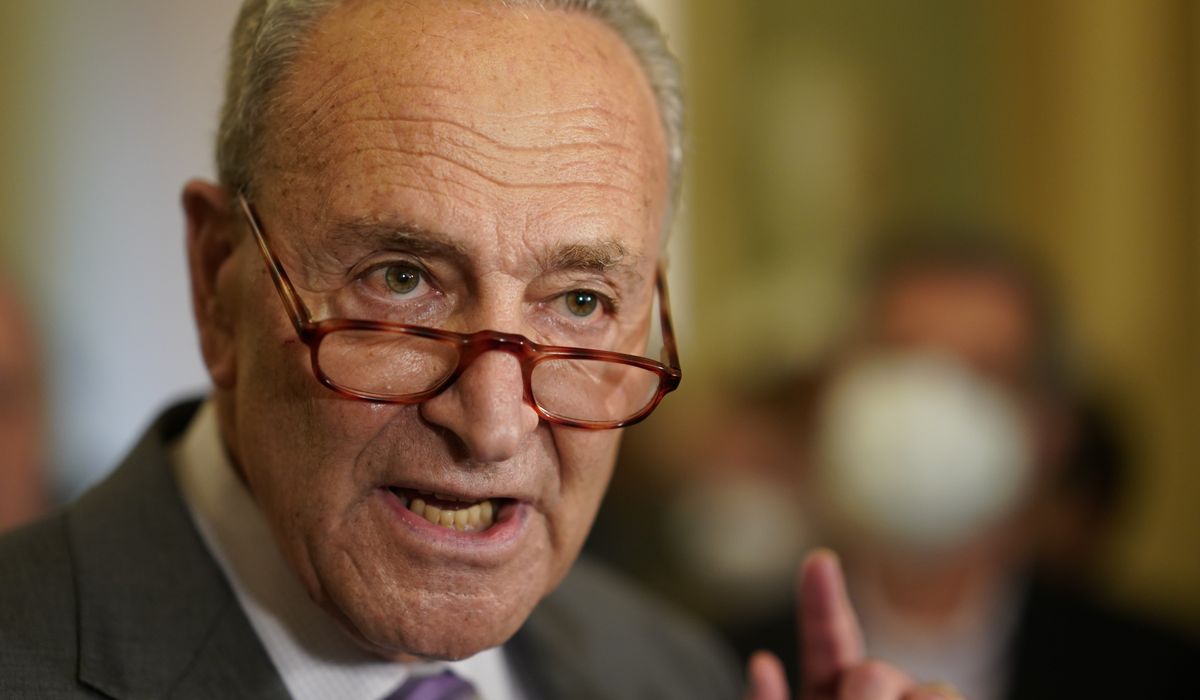
Senate Democrats are quietly exploring whether there is sufficient support to exempt raises in the debt ceiling from the chamber’s 60-vote filibuster threshold.
Democratic leaders broached the subject on Tuesday during a caucus lunch at the Capitol.
“We have very few options right now, so one of the options clearly is to have a narrow change in rules,” said Sen. Chris Murphy, a Connecticut Democrat.
Lawmakers propose a change in the Senate rules specifying that the filibuster, a 60-vote threshold needed to cut off debate on a piece of legislation, does not apply to the debt ceiling. Instead, Democrats say, any rise in the debt ceiling should require a simple majority of 51 votes.
For such a carve out to be enacted all 50 Senate Democrats would need to back the change. At the moment, the proposal has only garnered the backing of a handful of lawmakers.
No member of the Senate leadership has publicly endorsed the idea, but a surprise boost came Tuesday evening from the party’s overall leader — President Biden.
Mr. Biden said that changes to the Senate’s filibuster rules regarding the debt ceiling are being considered.
“It’s a real possibility,” he told reporters outside the White House.
But even if the party’s leaders push it, they would still need the support of moderate Democrats that have previously ruled out any change to the filibuster.
One such moderate Democrat, Sen. Joe Manchin III of West Virginia, appeared open to the idea, but refused to make any commitments.
“The filibuster has nothing to do with the debt ceiling,” Mr. Manchin said. “Basically, we have other tools that we can use, and if we have to use them we should use them.”
The proposal to change the Senate rules comes as Democrats and Republicans are at an impasse over the debt ceiling.
Democrats, led by Senate Majority Leader Charles E. Schumer of New York, have sought bipartisan support for a one-year suspension of the federal debt ceiling.
Mr. Schumer initially tried strong-arming Republicans into backing the debt suspension by tying it to a short-term government funding measure and disaster aid. That gambit failed in the Senate at the hands of GOP filibuster.
Senate Republicans, led by Minority Leader Mitch McConnell of Kentucky, argue that Democrats should do it unilaterally via budget reconciliation.
The process, which Democrats are poised to use to pass President Biden’s $3.5 trillion expansion of the federal safety net, allows certain spending and tax measures to avert the Senate’s 60-vote filibuster threshold and pass with a simple majority.
“If Democrats want to use fast-track, party-line procedures to ram through trillions more in inflationary socialism, they’ll have to use the same tools to handle the debt limit,” Mr. McConnell said.
Democratic leaders are wary of using the process to deal with the debt ceiling because under reconciliation rules they would have to specify an exact new ceiling for the nation’s borrowing limit.
Such an amount, which would be above the current limit of $28.8 trillion, opens vulnerable Democrats to attack during next year’s midterm elections.








